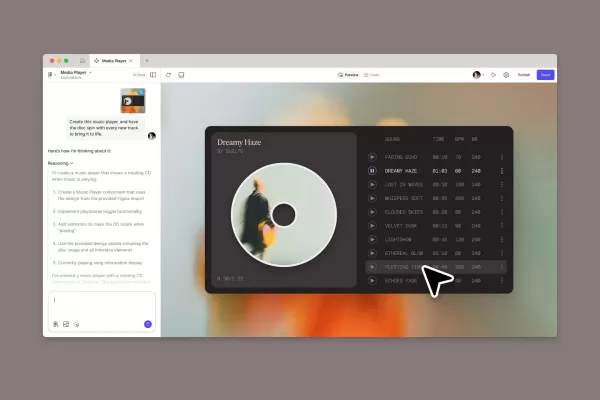Kubernetes: Revolutionizing Container Orchestration - Why It's Crucial for Modern IT

Over the last decade, Kubernetes has quietly revolutionized the way modern computing is orchestrated. You might not see it directly, but it's hard to find any sophisticated website or cloud service that doesn't rely on Kubernetes behind the scenes. So, what exactly is Kubernetes, and why is it so crucial?
The journey began with Docker, which made running applications in containers a breeze. Prior to Docker, companies typically used virtual machines (VMs) on servers, data centers, and in the cloud to run their applications.
Containers changed the game by allowing businesses to run programs with fewer resources, significantly cutting costs. They also made it possible to move applications seamlessly between different platforms. Before containers, applications were often tied to their initial environments. With containers, they became truly portable.
This newfound portability brought a new challenge: managing all these containers and their associated services. This is where orchestration programs came into play.
While there were several orchestration programs, Kubernetes emerged as the standout, becoming the backbone of cloud-native computing.
What is Kubernetes?
Kubernetes is essentially the conductor of an application's orchestra, ensuring all components work together efficiently and smoothly. In cloud-native computing, these components are often spread across various locations. Kubernetes acts as the orchestrator, gathering all necessary resources to keep applications running smoothly.
It might seem like a supercharged operating system, but Kubernetes is actually software that manages infrastructure resources across servers. It makes sure applications have the processing power, memory, storage, and network facilities they need to perform their tasks.
Kubernetes' Top Tech Features
Kubernetes offers several key features that make it indispensable:
Automated Scaling: Kubernetes can automatically adjust the number of running containers based on demand, ensuring optimal resource use.
Self-Healing Capabilities: It can restart failed containers, replace or reschedule containers when nodes fail, and terminate containers that fail health checks.
Service Discovery and Load Balancing: Kubernetes can expose containers using DNS names or IP addresses and distribute network traffic evenly across them.
Storage Choice: It allows you to mount your preferred storage systems, whether local, public cloud-based, or network storage systems.
Why is Kubernetes Important?
Kubernetes is a game-changer for businesses. According to Spectro Cloud's 2023 State of Production Kubernetes report, over half (56%) of enterprises manage more than 10 Kubernetes clusters, and 69% operate Kubernetes across multiple clouds or environments. A whopping 80% of companies anticipate further scaling their Kubernetes clusters, while 85% are shifting existing VM workloads to Kubernetes.
Here are six reasons why Kubernetes is so vital:
Cloud-Native Enabler: Designed to support cloud-native applications, Kubernetes provides the tools and abstractions needed to build scalable, resilient, and loosely coupled systems.
Portability: It can operate on various platforms, from public clouds to private clouds and on-premises setups, helping organizations avoid vendor lock-in and move workloads freely.
Ecosystem and Community: The vibrant Kubernetes ecosystem offers numerous tools, extensions, and integrations, supported by a robust open-source community that drives continuous innovation.
Resource Efficiency: By managing container placement and scaling efficiently, Kubernetes helps optimize infrastructure use, potentially saving companies a lot of money.
DevOps Enabler: Kubernetes supports DevOps practices by offering a consistent platform for development, testing, and production, facilitating CI/CD workflows for faster, more reliable software releases.
Hybrid Cloud: It enables businesses to build hybrid clouds based on Kubernetes, avoiding cloud vendor lock-in and potentially reducing costs for multi-cloud users.
The Future of Kubernetes
As cloud-native technologies continue to evolve, Kubernetes is set to become even more central to software creation and management. Beyond its initial focus on container orchestration, Kubernetes is expanding to support emerging technologies like serverless computing, edge computing, and machine learning operations (MLOps).
However, Kubernetes isn't without its challenges. As noted in the Spectro report, its power and flexibility can be a double-edged sword. As one IT manager put it, "Kubernetes is the most frustrating, painful, and beautiful thing I've worked with in my technology career." The platform's complexity makes it tough to manage securely and at scale.
According to ZipRecruiter, a Kubernetes engineer in the US earns an average annual salary of $156,773, reflecting the high demand and scarcity of skilled professionals in this field. I've yet to come across a company using Kubernetes that isn't constantly on the lookout for more engineers.
Despite these challenges, Kubernetes is poised to remain a key player in shaping the future of software development and deployment. With the support of the Cloud Native Computing Foundation and numerous companies, the open-source project is well-positioned to address its challenges and continue evolving.
Related article
 "Dot AI Companion App Announces Closure, Discontinues Personalized Service"
Dot, an AI companion application designed to function as a personal friend and confidant, will cease operations, according to a Friday announcement from its developers. New Computer, the startup behind Dot, stated on its website that the service will
"Dot AI Companion App Announces Closure, Discontinues Personalized Service"
Dot, an AI companion application designed to function as a personal friend and confidant, will cease operations, according to a Friday announcement from its developers. New Computer, the startup behind Dot, stated on its website that the service will
 Anthropic Resolves Legal Case Over AI-Generated Book Piracy
Anthropic has reached a resolution in a significant copyright dispute with US authors, agreeing to a proposed class action settlement that avoids a potentially costly trial. The agreement, filed in court documents this Tuesday, stems from allegations
Anthropic Resolves Legal Case Over AI-Generated Book Piracy
Anthropic has reached a resolution in a significant copyright dispute with US authors, agreeing to a proposed class action settlement that avoids a potentially costly trial. The agreement, filed in court documents this Tuesday, stems from allegations
 Figma Releases AI-Powered App Builder Tool to All Users
Figma Make, the innovative prompt-to-app development platform unveiled earlier this year, has officially exited beta and rolled out to all users. This groundbreaking tool joins the ranks of AI-powered coding assistants like Google's Gemini Code Assis
Comments (7)
0/200
Figma Releases AI-Powered App Builder Tool to All Users
Figma Make, the innovative prompt-to-app development platform unveiled earlier this year, has officially exited beta and rolled out to all users. This groundbreaking tool joins the ranks of AI-powered coding assistants like Google's Gemini Code Assis
Comments (7)
0/200
![KennethJones]() KennethJones
KennethJones
 August 23, 2025 at 7:01:21 PM EDT
August 23, 2025 at 7:01:21 PM EDT
Kubernetes sounds like a game-changer for IT! It's wild how much it’s shaping modern cloud services. Anyone else blown away by how seamless container orchestration has become? 😮


 0
0
![HaroldPerez]() HaroldPerez
HaroldPerez
 August 2, 2025 at 11:07:14 AM EDT
August 2, 2025 at 11:07:14 AM EDT
Kubernetes sounds like a game-changer for IT! It's wild how it’s quietly powering so many websites we use daily. 😎 Makes me wonder how companies managed before it.


 0
0
![PaulBrown]() PaulBrown
PaulBrown
 April 24, 2025 at 2:30:28 PM EDT
April 24, 2025 at 2:30:28 PM EDT
Kubernetesは私の仕事を完全に変えました!コンテナの管理が以前は頭痛の種だったけど、今は簡単です。まるでITのスマートなアシスタントを持っているみたい。ただ、セットアップがもう少し簡単だといいな。でも、現代のITには必須ですね!🚀👨💻


 0
0
![MiaDavis]() MiaDavis
MiaDavis
 April 24, 2025 at 1:12:07 PM EDT
April 24, 2025 at 1:12:07 PM EDT
Kubernetes는 내 작업을 완전히 바꿔놓았어! 컨테이너 관리하기가 예전에는 골치 아팠는데, 이제는 쉽게 할 수 있어. 마치 IT를 위한 똑똑한 비서를 가진 것 같아. 설치만 좀 더 쉬웠으면 좋겠어. 그래도 현대 IT에는 필수야! 🚀👨💻


 0
0
![AvaHill]() AvaHill
AvaHill
 April 23, 2025 at 1:18:53 PM EDT
April 23, 2025 at 1:18:53 PM EDT
Kubernetes ha cambiado totalmente el juego para mí. Gestionar contenedores solía ser un dolor de cabeza, pero ahora es pan comido. Es como tener un asistente súper inteligente para mis necesidades de TI. Solo desearía que fuera un poco más fácil de configurar. Aún así, imprescindible para cualquier configuración de TI moderna. 🚀👨💻


 0
0
![WilliamRamirez]() WilliamRamirez
WilliamRamirez
 April 23, 2025 at 8:41:37 AM EDT
April 23, 2025 at 8:41:37 AM EDT
Kubernetes has totally changed the game for me! Managing containers used to be a headache, but now it's a breeze. It's like having a super smart assistant for my IT needs. Only wish it was a bit easier to set up. Still, a must-have for any modern IT setup! 🚀👨💻


 0
0

Over the last decade, Kubernetes has quietly revolutionized the way modern computing is orchestrated. You might not see it directly, but it's hard to find any sophisticated website or cloud service that doesn't rely on Kubernetes behind the scenes. So, what exactly is Kubernetes, and why is it so crucial?
The journey began with Docker, which made running applications in containers a breeze. Prior to Docker, companies typically used virtual machines (VMs) on servers, data centers, and in the cloud to run their applications.
Containers changed the game by allowing businesses to run programs with fewer resources, significantly cutting costs. They also made it possible to move applications seamlessly between different platforms. Before containers, applications were often tied to their initial environments. With containers, they became truly portable.
This newfound portability brought a new challenge: managing all these containers and their associated services. This is where orchestration programs came into play.
While there were several orchestration programs, Kubernetes emerged as the standout, becoming the backbone of cloud-native computing.
What is Kubernetes?
Kubernetes is essentially the conductor of an application's orchestra, ensuring all components work together efficiently and smoothly. In cloud-native computing, these components are often spread across various locations. Kubernetes acts as the orchestrator, gathering all necessary resources to keep applications running smoothly.
It might seem like a supercharged operating system, but Kubernetes is actually software that manages infrastructure resources across servers. It makes sure applications have the processing power, memory, storage, and network facilities they need to perform their tasks.
Kubernetes' Top Tech Features
Kubernetes offers several key features that make it indispensable:
Automated Scaling: Kubernetes can automatically adjust the number of running containers based on demand, ensuring optimal resource use.
Self-Healing Capabilities: It can restart failed containers, replace or reschedule containers when nodes fail, and terminate containers that fail health checks.
Service Discovery and Load Balancing: Kubernetes can expose containers using DNS names or IP addresses and distribute network traffic evenly across them.
Storage Choice: It allows you to mount your preferred storage systems, whether local, public cloud-based, or network storage systems.
Why is Kubernetes Important?
Kubernetes is a game-changer for businesses. According to Spectro Cloud's 2023 State of Production Kubernetes report, over half (56%) of enterprises manage more than 10 Kubernetes clusters, and 69% operate Kubernetes across multiple clouds or environments. A whopping 80% of companies anticipate further scaling their Kubernetes clusters, while 85% are shifting existing VM workloads to Kubernetes.
Here are six reasons why Kubernetes is so vital:
Cloud-Native Enabler: Designed to support cloud-native applications, Kubernetes provides the tools and abstractions needed to build scalable, resilient, and loosely coupled systems.
Portability: It can operate on various platforms, from public clouds to private clouds and on-premises setups, helping organizations avoid vendor lock-in and move workloads freely.
Ecosystem and Community: The vibrant Kubernetes ecosystem offers numerous tools, extensions, and integrations, supported by a robust open-source community that drives continuous innovation.
Resource Efficiency: By managing container placement and scaling efficiently, Kubernetes helps optimize infrastructure use, potentially saving companies a lot of money.
DevOps Enabler: Kubernetes supports DevOps practices by offering a consistent platform for development, testing, and production, facilitating CI/CD workflows for faster, more reliable software releases.
Hybrid Cloud: It enables businesses to build hybrid clouds based on Kubernetes, avoiding cloud vendor lock-in and potentially reducing costs for multi-cloud users.
The Future of Kubernetes
As cloud-native technologies continue to evolve, Kubernetes is set to become even more central to software creation and management. Beyond its initial focus on container orchestration, Kubernetes is expanding to support emerging technologies like serverless computing, edge computing, and machine learning operations (MLOps).
However, Kubernetes isn't without its challenges. As noted in the Spectro report, its power and flexibility can be a double-edged sword. As one IT manager put it, "Kubernetes is the most frustrating, painful, and beautiful thing I've worked with in my technology career." The platform's complexity makes it tough to manage securely and at scale.
According to ZipRecruiter, a Kubernetes engineer in the US earns an average annual salary of $156,773, reflecting the high demand and scarcity of skilled professionals in this field. I've yet to come across a company using Kubernetes that isn't constantly on the lookout for more engineers.
Despite these challenges, Kubernetes is poised to remain a key player in shaping the future of software development and deployment. With the support of the Cloud Native Computing Foundation and numerous companies, the open-source project is well-positioned to address its challenges and continue evolving.
 Anthropic Resolves Legal Case Over AI-Generated Book Piracy
Anthropic has reached a resolution in a significant copyright dispute with US authors, agreeing to a proposed class action settlement that avoids a potentially costly trial. The agreement, filed in court documents this Tuesday, stems from allegations
Anthropic Resolves Legal Case Over AI-Generated Book Piracy
Anthropic has reached a resolution in a significant copyright dispute with US authors, agreeing to a proposed class action settlement that avoids a potentially costly trial. The agreement, filed in court documents this Tuesday, stems from allegations
 Figma Releases AI-Powered App Builder Tool to All Users
Figma Make, the innovative prompt-to-app development platform unveiled earlier this year, has officially exited beta and rolled out to all users. This groundbreaking tool joins the ranks of AI-powered coding assistants like Google's Gemini Code Assis
Figma Releases AI-Powered App Builder Tool to All Users
Figma Make, the innovative prompt-to-app development platform unveiled earlier this year, has officially exited beta and rolled out to all users. This groundbreaking tool joins the ranks of AI-powered coding assistants like Google's Gemini Code Assis
 August 23, 2025 at 7:01:21 PM EDT
August 23, 2025 at 7:01:21 PM EDT
Kubernetes sounds like a game-changer for IT! It's wild how much it’s shaping modern cloud services. Anyone else blown away by how seamless container orchestration has become? 😮


 0
0
 August 2, 2025 at 11:07:14 AM EDT
August 2, 2025 at 11:07:14 AM EDT
Kubernetes sounds like a game-changer for IT! It's wild how it’s quietly powering so many websites we use daily. 😎 Makes me wonder how companies managed before it.


 0
0
 April 24, 2025 at 2:30:28 PM EDT
April 24, 2025 at 2:30:28 PM EDT
Kubernetesは私の仕事を完全に変えました!コンテナの管理が以前は頭痛の種だったけど、今は簡単です。まるでITのスマートなアシスタントを持っているみたい。ただ、セットアップがもう少し簡単だといいな。でも、現代のITには必須ですね!🚀👨💻


 0
0
 April 24, 2025 at 1:12:07 PM EDT
April 24, 2025 at 1:12:07 PM EDT
Kubernetes는 내 작업을 완전히 바꿔놓았어! 컨테이너 관리하기가 예전에는 골치 아팠는데, 이제는 쉽게 할 수 있어. 마치 IT를 위한 똑똑한 비서를 가진 것 같아. 설치만 좀 더 쉬웠으면 좋겠어. 그래도 현대 IT에는 필수야! 🚀👨💻


 0
0
 April 23, 2025 at 1:18:53 PM EDT
April 23, 2025 at 1:18:53 PM EDT
Kubernetes ha cambiado totalmente el juego para mí. Gestionar contenedores solía ser un dolor de cabeza, pero ahora es pan comido. Es como tener un asistente súper inteligente para mis necesidades de TI. Solo desearía que fuera un poco más fácil de configurar. Aún así, imprescindible para cualquier configuración de TI moderna. 🚀👨💻


 0
0
 April 23, 2025 at 8:41:37 AM EDT
April 23, 2025 at 8:41:37 AM EDT
Kubernetes has totally changed the game for me! Managing containers used to be a headache, but now it's a breeze. It's like having a super smart assistant for my IT needs. Only wish it was a bit easier to set up. Still, a must-have for any modern IT setup! 🚀👨💻


 0
0





























